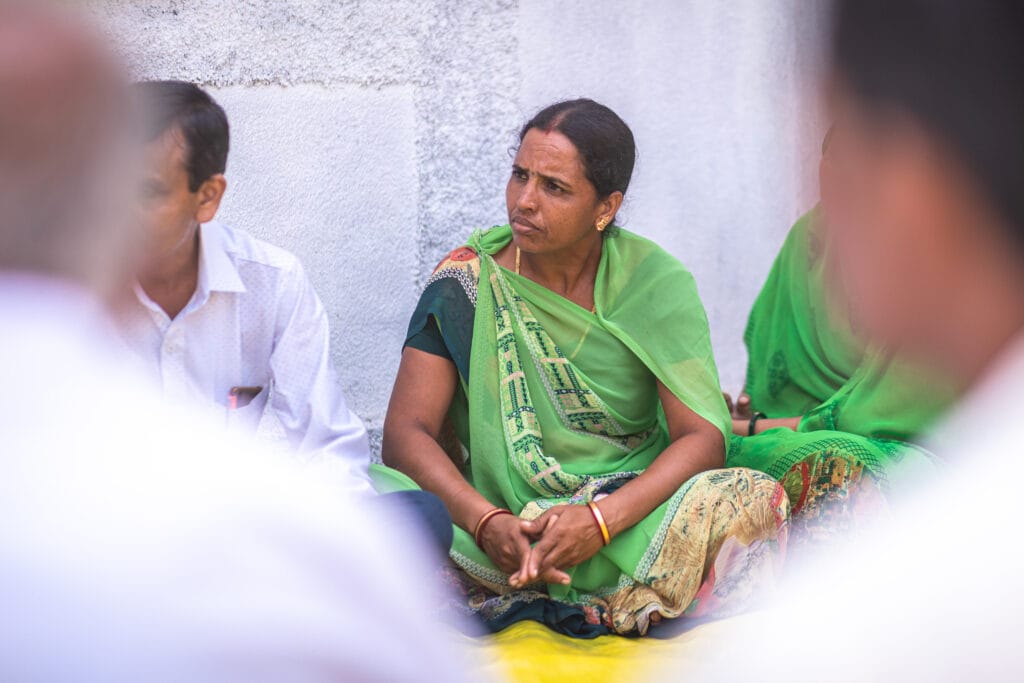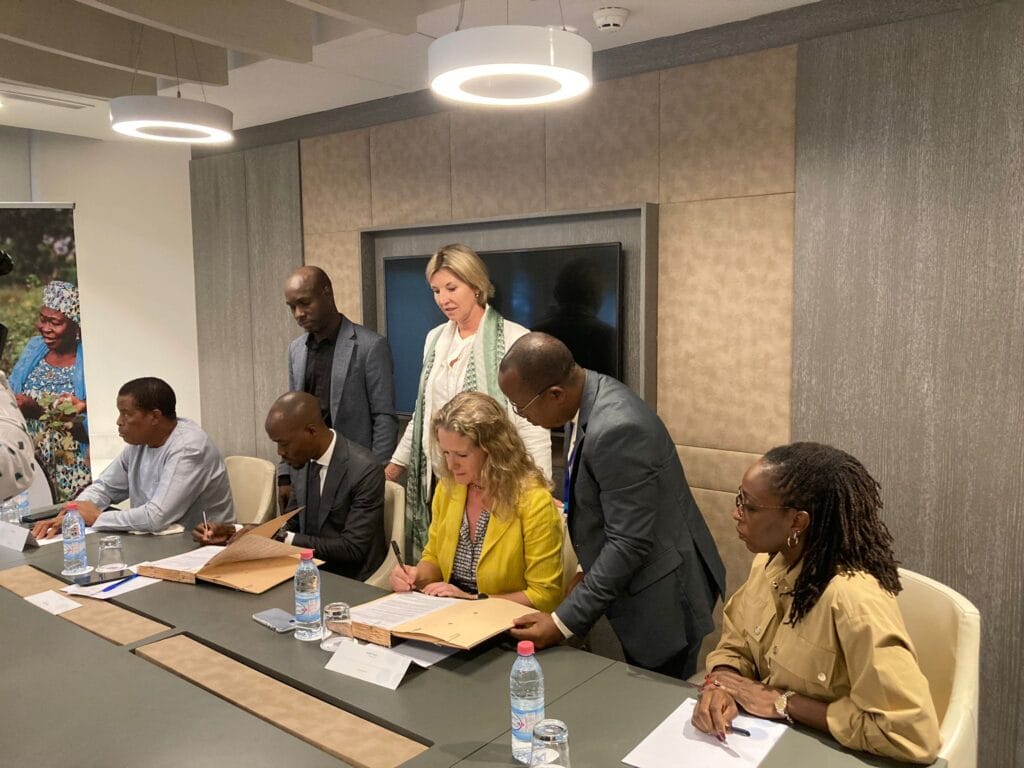New Wage Transparency Pilot in Pakistan
Better Cotton has announced that it will pilot a new wage sampling tool across Pakistan’s cotton sector to capture accurate worker wages and boost wage transparency.
Read moreBetter Cotton has announced that it will pilot a new wage sampling tool across Pakistan’s cotton sector to capture accurate worker wages and boost wage transparency.
Read more

Better Cotton has launched an ambitious research project in India aimed at defining best practices to empower women and boost their representation at the farm level in the cotton sector.
The project – funded by sustainability standards organisation ISEAL – will not only identify real-success stories that can serve as inspiration for targeted interventions, but it will also generate learnings that will benefit cotton farming countries around the world.
Women play a vital role in India’s cotton farming regions, but they continuously face significant barriers to advance their positions. These challenges stem from cultural and societal barriers, including limited access to education, restrictions on independent travel and unpaid domestic and care work that disproportionately falls on them.
Women form the foundation of cotton farming communities across India, but too often are their contributions unrecognised and unrewarded. This research project will help underpin our women’s empowerment efforts in the country by studying what does and what does not work.
Over the next year, Better Cotton will work closely with two in-country Programme Partners1, Cotton Connect India and WWF India, who together support more than 125,000 Better Cotton licensed farmers across Maharashtra and Telangana.
The aim is to gain insights into their recruitment strategies and retain more women into organisational leadership roles. As part of the process, community-facing roles – such as Producer Unit Managers and Field Facilitators – have been identified as an area for investment and strengthening.
The results will help Better Cotton develop and streamline mechanisms for supporting women in cotton as it works towards its 2030 Impact Target2 on women’s empowerment.
We want to strengthen the women in community facing organisational roles because that’s one of the best pathways to empower women in farming roles. It’s a unique supportive relationship – bringing technical knowledge, safe space, inspiration and modelling all together. Since they are from the same communities, women facilitators carry a deep understanding of the challenges women farmers and cultivators battle with. Because they are also the ones who are agronomic experts on the field, their presence speaks volumes about what is possible for women in farming communities.
Our experience shows that women have a natural affinity for learning and adopting nature-positive agricultural practices. With dedicated women learning groups, full-time training sessions, and seasonal workshops, we are laying the groundwork for continuous progress. This research project has the potential to guide us in refining these efforts, creating new innovations, and further empowering women in cotton cultivation. It will also open up opportunities for scaling these practices, making sustainable cotton farming a widespread reality in Telangana and beyond.
Female staff members contribute valuable skills especially indigenous knowledge and perspectives, enhancing the overall effectiveness of agricultural initiatives. Furthermore, their presence fosters a supportive network of female peers, which is instrumental in empowering women in the field. This gender balance promotes equitable decision-making processes and leads to more adoption of sustainable agricultural practices, thereby improving livelihoods within the sector.
1 Programme Partners work with cotton farming communities to help ensure they produce cotton in compliance with the Better Cotton Standard System (BCSS) and its Principles & Criteria (P&C).
2 By 2030, Better Cotton has committed to reaching one million women in cotton with programmes and resources that promote equal farm decision-making, build climate resilience, or support improved livelihoods. This is in addition to ensuring that 25% of field staff are women with the power to influence sustainable cotton production.
Read more

Better Cotton has launched a new programme in Benin to support the production of more sustainable cotton in West Africa.
The programme will aim to engage more than 200,000 smallholder cotton farmers in order to embed sustainable farming practices, improve livelihoods and help them adapt to the effects of climate change.
As Better Cotton’s presence across Africa continues to grow, so too does the movement towards more sustainable cotton production. There is incredible appetite for change on the continent and we’ll work with partners new and old to leverage that.
The Interprofessional Cotton Association of Benin (AIC) will serve as a Strategic Partner for the Better Cotton Programme. The AIC manages both farming and cotton ginning bodies and more broadly facilitates relations with the sector’s stakeholders across Benin.
As Strategic Partner, the AIC will lead the establishment and implementation of an impactful Better Cotton Programme and help drive engagement with the country’s farming communities and other stakeholders.
The start of a Better Cotton Programme in Benin is a matter of national initiative supported by the entire cotton sector and managed by the Interprofessional Cotton Association. The implementation of this programme will help our valiant producers strengthen their resilience by introducing more sustainable production practices.
The agreement was formalised at a multistakeholder meeting in Cotonou, Benin, on 8 October where both organisations met to discuss the opportunities and challenges in cotton farming and agriculture more broadly.
Benin is Africa’s second largest cotton producing country after Mali. In the 2022/23 season, it produced more than 580,000 metric tonnes (MT) of cotton, according to government figures.
Better Cotton operates programmes across Africa in Mozambique, Egypt, Mali and Côte d’Ivoire.
Read moreBetter Cotton CEO Alan McClay takes a look at his key highlights from our 2023-24 Annual Report in this blog.
Read moreBetter Cotton is excited to be launching revisions of its Claims Framework, Chain of Custody (CoC) Standard and Chain of Custody Monitoring and Assessment Process.
Read moreBetter Cotton has announced the renewal of its strategic partnership with the cotton sustainability initiative ELGO-DOV in Greece.
Read moreWe sat down with Tom Owen, Better Cotton’s Head of Certification, to find out what certification really means, and why it matters for Better Cotton and our stakeholders.
Read moreBetter Cotton has published its 2023-24 Annual Report, highlighting its global impact, programme expansion, and the resilience of cotton-growing communities.
Read moreIn April 2024, Better Cotton was the focus of a report, published by the environmental non-profit, Earthsight, which highlighted issues in the cotton industry of Brazil’s Matopiba region.
Better Cotton commissioned an independent consultant1 to investigate potential non-compliances on selected farms2. We subsequently published our statement and summary of findings, which did not detect any breach of the Better Cotton Standard on the licensed farms in question.
In June 2024, Better Cotton was notified that Earthsight would release a “second output”. This specific content was not shared with Better Cotton. Instead, Earthsight contacted us prior to its release for clarity on various points which we have detailed in this document.
In August 2024, Better Cotton received the Community Engagement Report from Imaflora, the independent consultant it had hired to conduct this study. In this document we summarise their findings and how they will inform our action plan.
To reiterate, we welcome scrutiny from civil society organisations. Reports like Earthsight’s help identify instances where improvements can be made. We once again extend an invite to Earthsight to engage with us to learn more about our standard system and the approach we take at field level.
Our mission is to help cotton communities survive and thrive while protecting and restoring the environment, thereby delivering progressive, measurable improvements at field level. Our model focuses on impact, scale and industry uptake to enable all cotton farmers to transition to more sustainable production.
We recognise that challenges exist in many of the countries in which we operate. It is only with action and perseverance in the most challenging circumstances for cotton farming that transformative change at scale can be made, and we are proud of the progress we have helped deliver globally with our dedicated network of partners and members.
In the spirit of transparency, the document below contains further details on our action plan, clarifications and follow-up explanations to our previously issued statement, as well as information about elements of the Better Cotton Standard System.
In late August 2024, Better Cotton held its inaugural Large Farm Week in Türkiye. The four-day affair was an eventful in-person convening of our large farm partners in cotton.
Read more